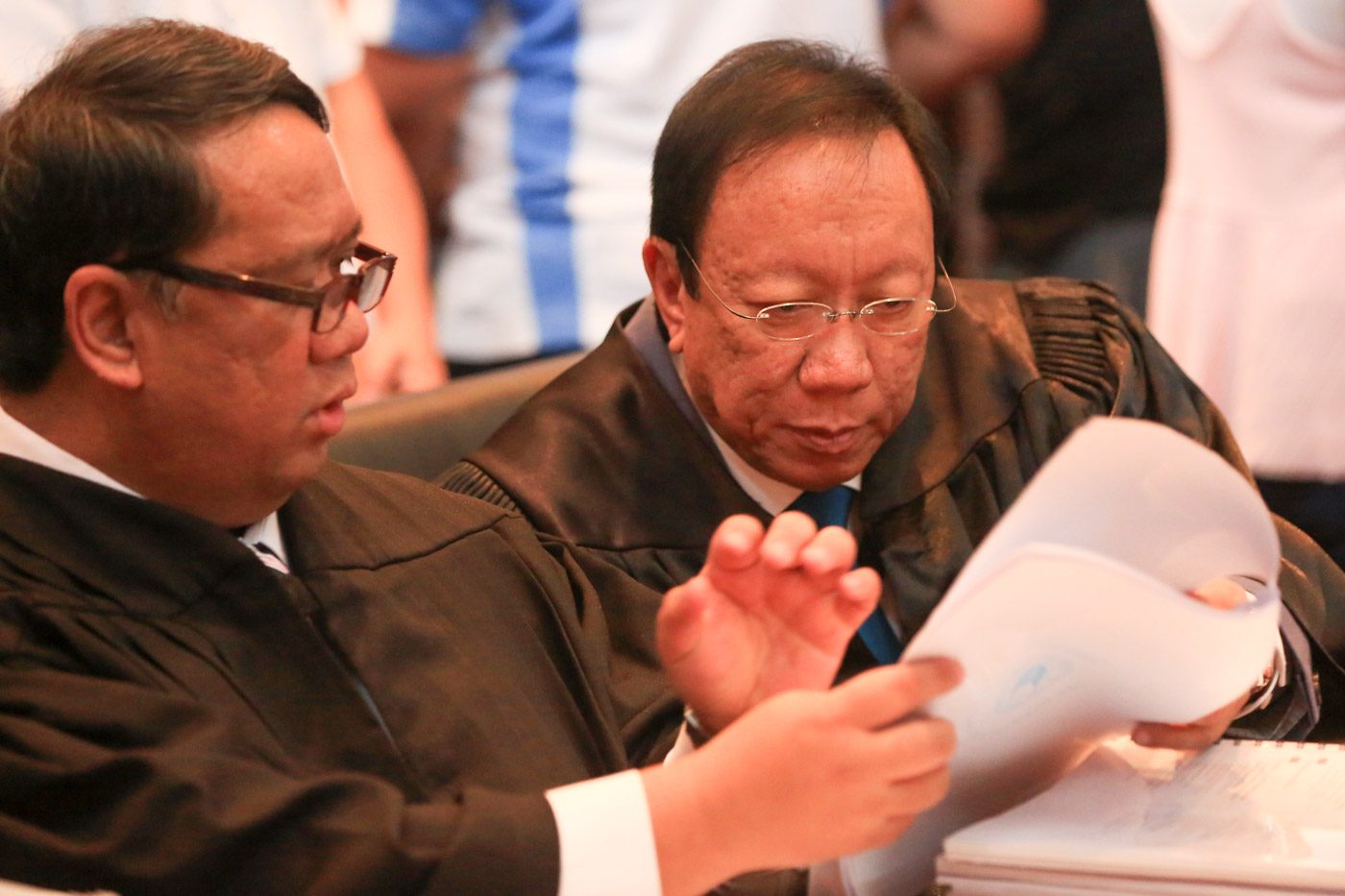SUMMARY
This is AI generated summarization, which may have errors. For context, always refer to the full article.

MANILA, Philippines – The drug list is secret, and there’s no clear process on how to know if you’re on it and how to get your name off it.
This was the answer of Solicitor General Jose Calida, who was grilled by Supreme Court Chief Justice Maria Lourdes Sereno on Tuesday, December 5, during Round 3 of the oral arguments on the war on drugs.
Sereno dedicated her time of interpellation on this issue, and asked Calida if one can write a letter to the police to ask if their name is on the list.
“If he’s not on the list, the police will say ‘no’ if you’re not on the list,” Calida said. But if one is on the list, Calida said “that’s another thing.”
“Maybe they are still validating the intelligence information so we cannot divulge it,” Calida said of the PNP drug list. (READ: HIGHLIGHTS: What was discussed in SC oral arguments on drug war?)
‘National security’
Sereno noted that one of the petitioners tried to access the drug list to verify if their names are on it, but got nowhere with the police.
“It was futile, there is nothing in the system that allows a removal,” Sereno said.
The Chief Justice also said that under the code of ethics, public officers are required to answer to an inquiry within 15 days.
“There will be a response to it but I cannot predict what will be the response,” Calida said.
Pressed further if the Freedom of Information Act can be invoked to access the list, Calida said: “There are certain matters that cannot be divulged like secrets, top secrets. We cannot compromise the operation by divulging it to the public.” (READ: Destabilization or ripe for suspension? Day 2 of SC drug war oral arguments)
“It must be confidential, because if it will be published, we will not be able to catch the drug lords,” Calida said.
Sereno pushed further, asking Calida if the drug list can be subject to a petition for a writ of habeas data.
The writ of habeas data, which took effect during the cruel anti-insurgency campaign of the Arroyo administration, is a remedy for a person whose right to life is threatened. (READ: Lawyers to question before Supreme Court role of prosecutors in EJKs)
The writ sets up a mechanism where information which is erroneous and can be damaging to an individual can be destroyed, or rectified. In this context, individuals labeled as drug personalities can avail of the writ so that the information against them can be addressed.
But Calida said the drug list is a matter of national security, and therefore cannot be covered by the writ of habeas data.
“I disagree that it is a matter of national security, it’s a simple police matter,” petitioner Dean Jose Manuel “Chel” Diokno told reporters after the session was adjourned.
Diokno argued that community members are entitled to know who is on the drug list. “Paano kung ang pangalan ko ay nandoon (what if my name is on the list), how can I be given due process if I believe that my name should not be there?” Diokno said.
So when asked by Sereno to provide the court with the drug list in San Andres Bukid in Manila, the subject of one of the petitions, Calida said they will have to study the request “before he can commit to anything.”
Quota?
There seemed to be moments of tension between Sereno and Calida, especially when the Chief Justice asked that the representative from the Philippine National Police (PNP) answer her questions.
The first time, on the question of why raids are “unusually” conducted from 1 am to 3 am, Calida allowed PNP Director for Investigation and Detective Management (DIDM) Police Director Augusto Marquez to answer.
But on the question of whether there is a quota system, reportedly the basis for incentives for policemen conducting anti-drug operations, Calida refused to let Marquez take the podium.
“I can answer for him, there is none,” Calida interjected.
Sereno’s line of questioning on Tuesday had strong indications of her opposition to the war on drugs.
She grilled Marquez about why the police do not issue arrest warrants when they already claim to have sufficient intelligence information.
“The practice in the field is that even if they have already the warrant of arrest, they still conduct buy-bust operations if only to prove that they are indeed pushers,” Marquez said.
Calida and the petitioners are given 60 days to submit their memoranda, after which the petitions will be submitted for the court’s decision.
Case records of the 3,806 cases of nanlaban deaths will be included in Calida’s memorandum, after Senior Associate Justice Antonio Carpio compelled him to submit them. – Rappler.com
Add a comment
How does this make you feel?
There are no comments yet. Add your comment to start the conversation.